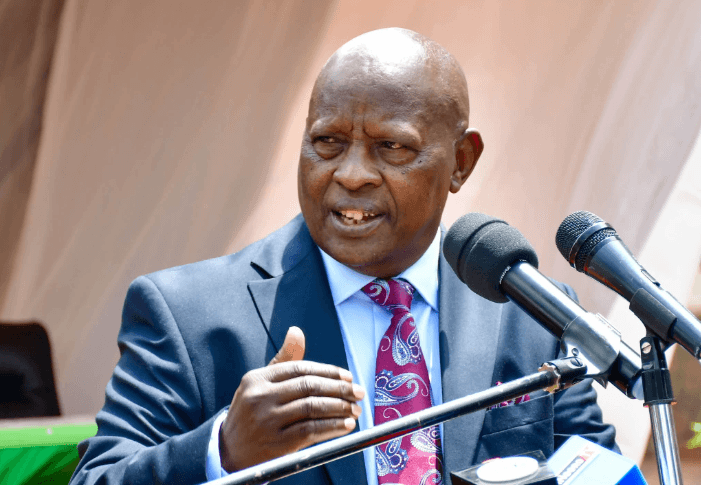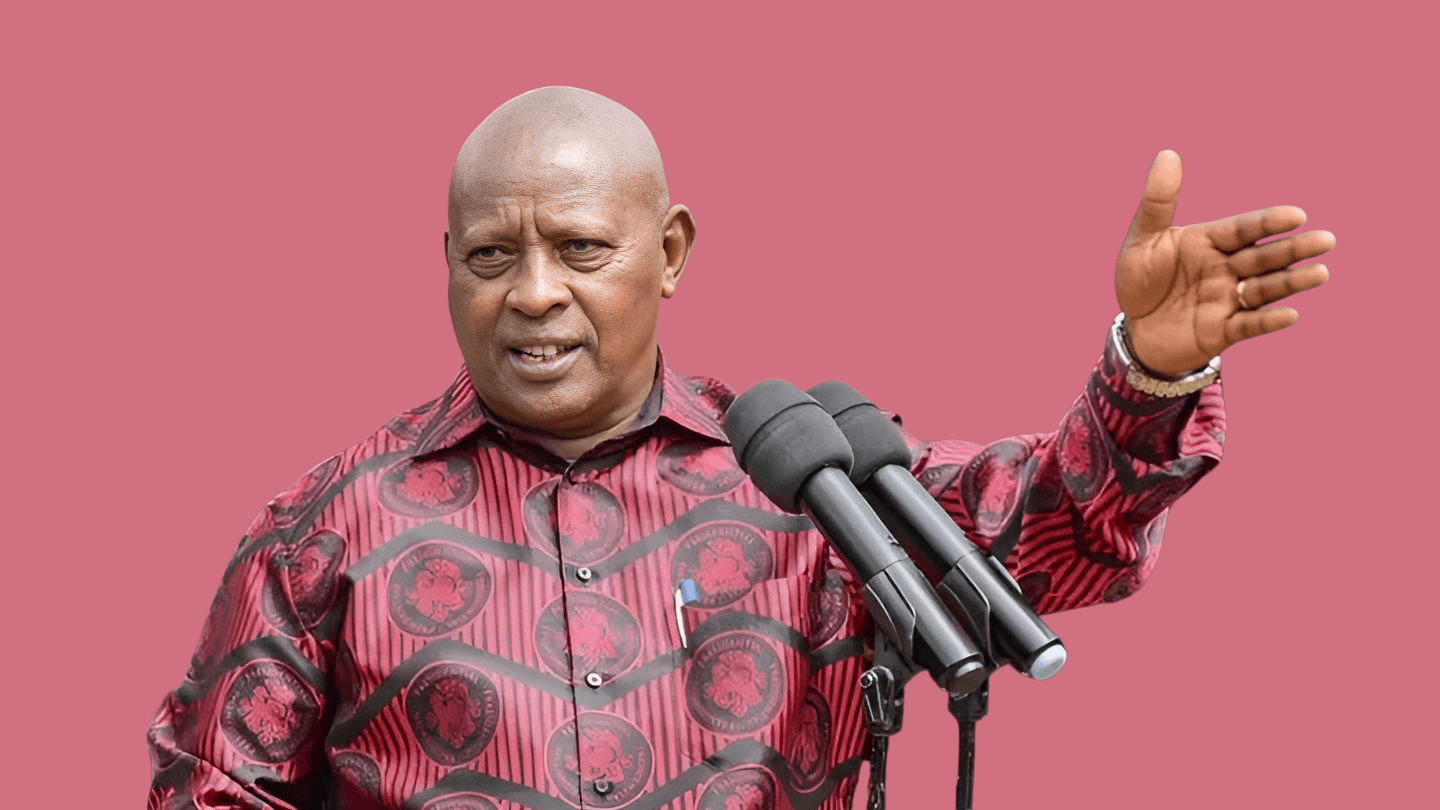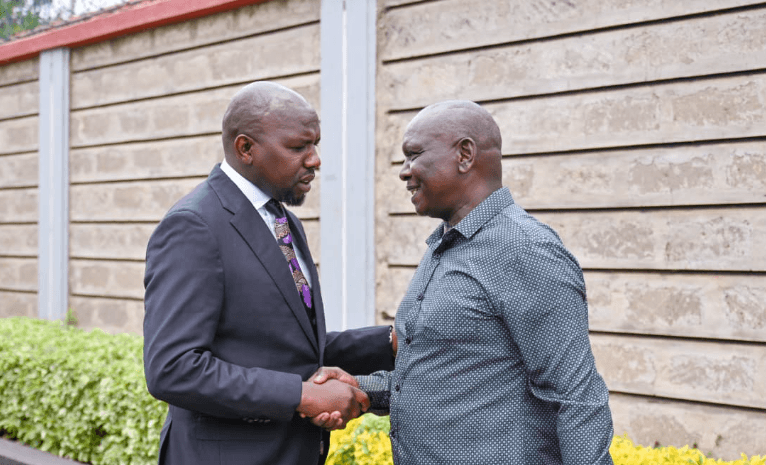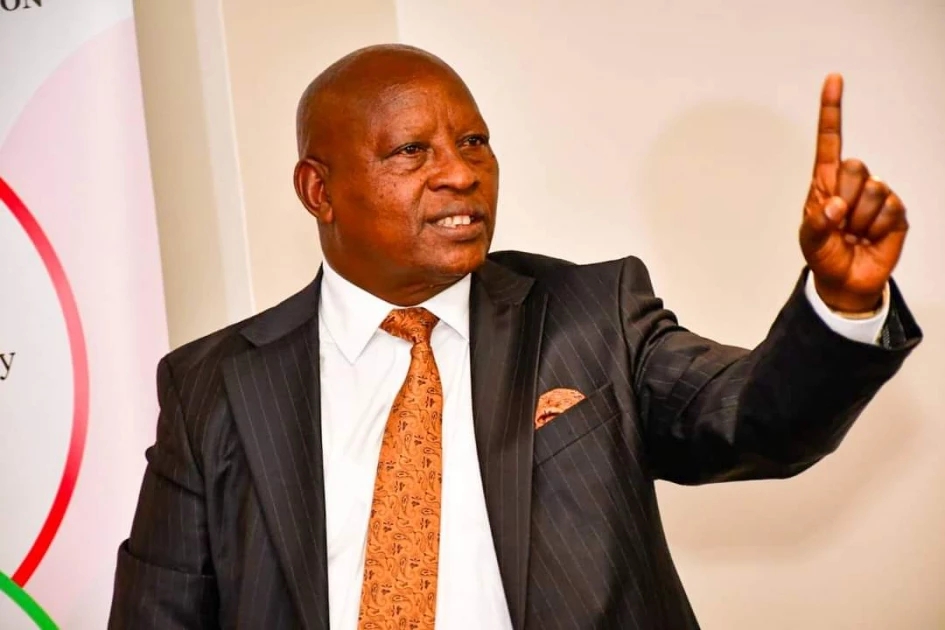Cyberbullying takes a toll on someone's mental health. When young girls in the community are victimised, they can end up suffering from depression.
Quinter Wambulwa is a strong, tall and bold woman who rose from being a cyber bullying victim to now an inspiration for gender-based violence survivors.
In 2018, her nudes were sent to the public by her ex-boyfriend, something which really affected her mentally, resulting in depression.
“Imagine your nudes being sent to your family, friends and on social media?” she said.
“I was suicidal a number of times, but I'm glad I had a supportive system, including people from my community.
"They really appreciated the work I had been doing in the community on mental health and gave me support and morale to continue doing the work."
Wambulwa is now the founder of Girls for Girls Africa Mentor Health Foundation, which she started in 2018.
She said cyber GBV is a topic not so many people are open about, and being a survivor, she feels mandated to raise awareness about it.
She said her foundation is just a way to give back to the community and allow other survivors and persons who struggle with mental health to access psychosocial support and be able to find a community.
Imagine your nudes being sent to your family, friends and on social media? I was suicidal a number of times, but I'm glad I had a supportive system
LEGAL LACUNA
Wambulwa, who is also a psychologist, said the government should come up with laws that will allow survivors to access justice.
“This is one of the main issues we are having because when it comes to online advocacy or online bullying, there are no clear laws and rules that actually protect survivors,” she said.
She said many young people need to learn about online privacy, and those going through online abuse need to know how to take care of themselves.
As for her, she had to learn to take time off social media and just be with herself, her family and friends, something that has helped her in healing.
Seeking therapy is another way of healing because when one is going through abuse online, sometimes it feels so lonely, she says.
One needs to have people who will give support through the recovery journey.
“Using social media for the social good definitely should be one of the key ways in which young people could even manage their mental health by really being intentional on how they use social media space,” she said.
"As it continues to evolve, children are now being exposed to it thus being at a risk of being victims of cyberbullying."
She said parents need to also be accountable for their children, especially young people who are using social media, and be concerned about the apps their children are using.
Wambulwa also called upon parents to install apps that could even help them track how their kids are using their phones.
“Generally I feel like online safety starts with you because if you allow yourself to be a bully online, then it means there is so much with you that you have not yet settled with,” she said.
"But if you are safe online and you are not bullying others, then you are one of the few people who are using social media for the betterment of the society."
She encouraged young people to present themselves online in a manner that helps other people.
If they are content creators, doing podcasting, using Twitter Spaces or going live on Instagram, they should make sure they are creating content that helps the community.
“You do not have to be bullying people because those people have feelings and emotions, and some of those things that are said, people can actually get hurt, and some get hurt to a point they want to kill themselves,” she said.
“So we have to know that behind these digital gadgets, there are people with real feelings and emotions, and they deserve respect and dignity even while engaging online.”
Wambulwa is also the author of two books, titled 'Self-care kit to mental wellness' and 'The ultimate mental health planner'.
She said the two books are just kits to allow survivors and any other person struggling with mental health to also get the resources they need.
“The books were inspired by my own journey. I think journaling and writing for me has been a way of expressing and releasing my pain,” she said.
"Through that, I have been able to help others because it is like a workbook that allows you to write your own journey."
FARMING INITIATIVE
Wambulwa said it is time for the national government to prioritise and fund mental health because many young people are succumbing to depression and addiction.
“Mental health is not funded well by the government and even globally,” she said.
The author called for investment in mental health organisations, CSOs, gender departments and even just creating more safe spaces for young people to access the services.
She said many survivors go back to the abusers, who are like breadwinners in the families, even after going through therapy sessions because most of them are not financially independent.
It is through this that she also started a project on pumpkin farming in Mwakirunge subcounty, Mombasa, because she wanted the survivors not only to make their money but also to become agents of climate change in their communities.
The main aim of the project is to create a social enterprise that would make pumpkin flour through pumpkin value addition.
“The survivors are trained. They work on the farm by planting the pumpkins and after the fifth month, we harvest and process pumpkin flour, seed and seed oil,” she said.
“We are doing this because we believe a lot of young people who have given birth to kids need nutritious food.
So the pumpkin flour will be used to make very nutritious porridge that could be used by young mothers for weaning, and we want to use the pumpkin seeds to just boost the serotonin of people struggling with mental health.”
Wambulwa said people who struggle with mental health have reduced levels of serotonin, and their model uses nutrition to boost mental health.
“This is just a holistic model that survivors can go through and then when they go back to the community, they can do farming and provide for their families and even choose to walk away from the abusers,” she said.
Setting up the social enterprise, she said, will also be generating income for survivors because they are the same women who work on the social enterprise, so the model is about empowering women to be financially independent and make decisions on their own, not necessarily rely on the abusers.
“We started the pumpkin farming in January 2022, and so far, we are using drip irrigation, which allows us to farm throughout the year,” she said.
"If we get more funding, definitely we will look for more land and reach out to more survivors and train them to become farmers."
She said they are working with the Mombasa Gender department to ensure all social centres have counselling centres to allow people to access mental health care in their communities.
In terms of laws to protect victims, she said as a country, Kenya is somewhere but more needs to be done.
“I feel like more policies have been done but then work needs to be done. I do not encourage the continuous use of making and creating policies. We have so many people sitting on boards, creating policies and all that, yet we do not go on the ground to implement them,” she said.
“I feel like it is high time we start implementing all these other policies that have been in place for the longest time ever. It is time to act now.”
WAY FORWARD
The Girls for Girls foundation, in conjunction with the Gender department, has reached out to 1,500 survivors since the onset of Covid-19.
“As an organisation, our mandate is to continuously offer free mental health to our survivors and caregivers,” she said.
"Even right now, we are rolling out mental health in campus to allow students to access free mental health care because we understand that a lot of young people struggle in accessing therapy because it is expensive."
She believes physical violence has been normalised but people are not paying attention to emotional violence, which a lot of survivors go through, especially when it comes to cyberbullying.
“I feel like it is high time we raised awareness on all forms of GBV that are happening in the community because financial abuse is also another form of GBV that a lot of people are not talking about. There is psychological abuse, emotional and even spiritual abuse,” she said.
She said there are a number of abuse or harmful practices still happening in the communities, but not so much attention has been given to them.
When survivors are given space to talk about their stories, she said, it allows other survivors wherever they are to feel seen and to feel heard, so safe spaces should be created for survivors to tell their stories.
“We are trying to encourage other survivors not to be silent; they should be given spaces to tell their stories without shame,” she said.
“The issue about people invalidating other people's stories, the society should avoid that because all trauma is valid, and there is no big or small trauma.
"As long as you have experienced anything that is not good for your health, then you should be able to talk about it if you are comfortable doing that.”
She also said survivors should be given the right to justice just like mental health is a right to them, and accessing both justice and mental health care is really paramount to survivors' well-being and even their recovery back in the communities.
“Cyberbulling is something that needs more attention because even the world has moved away from analogue to digital, so we are all spending our lives online,” she said.
"I feel like online protection should be key to each and every one because cyber bulling can lead to depression and suicidal thoughts.
“I have had friends who have been bullied online and later on got lost in drugs, and some even died by suicide. So cyberbulling is something that needs to be addressed.”










